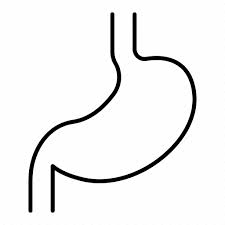
Reference: chamomile
Banner



Artichokes are true works of natural art - their unique, wing-like leaves come together in a harmonious whole, tempting with their extraordinary form. The delicate and subtly nutty texture of the artichoke heart is perfect for enriching your culinary journey. Feel how the robust flavor harmonizes with subtle hints of lemon, and each successive leaf yields to your palate with increasing delight.
Not only the taste but also the health benefits of artichokes deserve attention. They are a rich source of antioxidants that support your well-being and aid in detoxifying your body. Additionally, artichokes are low in calories, making them an ideal choice for those mindful of their figure.
 Security policy
Security policy
(edit with the Customer Reassurance module)
 Delivery policy
Delivery policy
(edit with the Customer Reassurance module)
 Return policy
Return policy
(edit with the Customer Reassurance module)
 Other names used for the artichoke:
Other names used for the artichoke:
 1. What are the health properties of artichoke, and what are the potential health benefits of consuming it ?
1. What are the health properties of artichoke, and what are the potential health benefits of consuming it ?
Artichoke, also known as artychoke, is a vegetable with a distinctive and unique structure and taste that has many health properties and benefits for the body. Artichoke is a rich source of fiber, vitamin C, magnesium, potassium, iron, and zinc, making it an excellent addition to a healthy diet. It also contains essential amino acids, flavonoids, organic acids, and antioxidants, which can contribute to improving overall health. The properties of artichoke primarily include supporting the digestive processes, detoxifying the body from toxins, and reducing cholesterol levels in the blood. Artichoke also has a positive impact on the liver, improving its functioning and regeneration.
Artichoke can also help maintain a proper blood sugar level, which is especially important for people with diabetes or a predisposition to its development. Studies have shown that consuming artichoke can reduce insulin resistance, contributing to overall health improvement. Other health benefits associated with artichoke consumption include reducing the risk of cardiovascular diseases, improving digestion, and alleviating symptoms of intestinal disorders, including irritable bowel syndrome. In summary, artichoke is a rich source of nutrients and has many health benefits. Regular consumption of artichoke can help maintain proper blood sugar and cholesterol levels, improve liver and digestive processes, and reduce the risk of cardiovascular and intestinal diseases.
 2. Can artichoke help regulate cholesterol levels in the blood and prevent heart diseases ?
2. Can artichoke help regulate cholesterol levels in the blood and prevent heart diseases ?
Artichoke is a plant rich in nutrients and bioactive compounds that are beneficial for health, including the heart and cardiovascular system. Many scientific studies suggest that regular consumption of artichoke can help regulate cholesterol levels in the blood and reduce the risk of cardiovascular diseases. Artichoke contains large amounts of bioactive substances, including flavonoids, phenolic acids, cynarin, and other antioxidants. Cynarin, in particular, is a compound that exhibits strong protective effects on the cardiovascular system. Studies have shown that cynarin can lower triglyceride and total cholesterol levels in the blood while increasing HDL cholesterol (good cholesterol), which is beneficial for heart health. Additionally, artichoke contains a significant amount of dietary fiber, which is essential for gastrointestinal health and beneficial for controlling blood sugar levels. Consuming artichoke can also help reduce inflammation, which can contribute to cardiovascular diseases. Although artichoke can bring health benefits, it is essential to remember that it cannot replace a healthy lifestyle and diet. People with heart diseases or high cholesterol levels should consult a doctor to determine the best treatment and diet plan.
 3. Can consuming artichoke help in treating liver diseases such as fatty liver or hepatitis ?
3. Can consuming artichoke help in treating liver diseases such as fatty liver or hepatitis ?
Artichoke is a rich source of plant compounds that can aid in protecting the liver from damage. Specifically, chlorogenic acid present in artichokes exhibits hepatoprotective effects, shielding liver cells from oxidative stress and preventing damage. Additionally, artichokes contain compounds with choleretic properties, such as cynarin, which can help regulate the production and secretion of bile, promoting better liver function. Research suggests that regular consumption of artichokes can assist in treating liver diseases, such as fatty liver or hepatitis. In one study conducted on individuals with fatty liver disease, consuming artichoke for 2 months resulted in reduced levels of liver enzymes, indicating an improvement in liver function. Another study showed that supplementing with artichoke extract for 6 weeks led to reduced blood lipid levels in individuals with liver disease. However, it's important to note that consuming artichoke alone is not sufficient for the independent treatment of liver diseases. Proper diet and treatment prescribed by a doctor are necessary. People with liver diseases should consult a doctor before incorporating artichoke into their diet.
 4. Can artichoke help regulate blood sugar levels and be beneficial for diabetics ?
4. Can artichoke help regulate blood sugar levels and be beneficial for diabetics ?
Artichoke can be beneficial for diabetics as it contains components that can help regulate blood sugar levels. One of these components is inulin, a water-soluble fiber that aids in lowering blood glucose levels by delaying the absorption of carbohydrates from the small intestine. Inulin also helps maintain a healthy gut microbiota, which is essential for individuals with diabetes, as the disease can negatively impact gut bacteria and increase the risk of diabetes-related complications. Furthermore, artichoke is a source of flavonoids, such as cynarin, which may increase insulin sensitivity and reduce insulin resistance, particularly important for type 2 diabetes. Studies have also shown that consuming artichoke may help lower the risk of developing type 2 diabetes by regulating blood glucose levels. However, it is essential to remember that consuming artichoke does not replace medical treatment for diabetes, and it should not be used as a standalone treatment. People with diabetes should consult a doctor to determine the appropriate diet and treatment plan.
 5. What are the antioxidant properties of artichoke, and how can they help in preventing chronic diseases ?
5. What are the antioxidant properties of artichoke, and how can they help in preventing chronic diseases ?
Artichoke is a rich source of antioxidants, meaning it contains substances that neutralize free radicals in the body. Free radicals are unstable molecules that can damage cells and contribute to the development of chronic diseases such as heart disease, cancer, and neurodegenerative disorders. Antioxidants in artichoke, such as phenolic acids, flavonoids, and cynarin, help protect cells from damage and reduce the risk of chronic diseases. Studies have shown that regular consumption of artichoke can have a beneficial impact on heart health by reducing the risk of cardiovascular diseases such as atherosclerosis and hypertension. Additionally, artichoke may help prevent cancer by inhibiting the growth of cancer cells and inducing their apoptosis, which is programmed cell death. Artichoke can also aid in preventing neurodegenerative diseases such as Alzheimer's and Parkinson's by protecting nerve cells from damage and preventing inflammation in the brain. Because artichoke contains many valuable antioxidants, it may help prevent various chronic diseases and positively impact our overall health. However, it's important to note that artichoke is not a cure for diseases and should not replace a balanced diet and a healthy lifestyle.
 6. Can artichoke be an effective remedy for digestive pain and indigestion ?
6. Can artichoke be an effective remedy for digestive pain and indigestion ?
Artichoke is a popular natural remedy used to alleviate symptoms of digestive pain and indigestion. It contains several valuable compounds, such as cynarin, that can help improve digestion and liver function. Cynarin works by stimulating bile production, which is essential for digesting fats, and it also helps protect the liver from harmful chemicals. Research suggests that artichoke extract may help reduce symptoms of indigestion, bloating, and abdominal pain. The substances present in artichoke have spasmolytic properties, which can help reduce muscle tension in the intestines and contribute to improved intestinal peristalsis. However, it's important to remember that artichoke is not a miraculous cure for digestive issues and indigestion. Before using artichoke as a remedy for digestive pain and indigestion, it's always best to consult with a doctor or pharmacist. Additionally, individuals with gastrointestinal disorders should exercise caution and consult a doctor before using artichoke as a remedy for digestive issues.
 7. What are the anti-inflammatory properties of artichoke, and how can they help in alleviating inflammation in the body ?
7. What are the anti-inflammatory properties of artichoke, and how can they help in alleviating inflammation in the body ?
Apart from its delicious taste, artichoke is also rich in components with anti-inflammatory properties, which can offer various health benefits. Artichoke contains phytonutrients such as flavonoids, chlorogenic acid, and cynarin, which act as natural antioxidants and anti-inflammatory agents. Studies have shown that cynarin, a compound found in artichoke, may help block pro-inflammatory pathways, thus alleviating inflammation in the body. The health benefits of artichoke in terms of its anti-inflammatory properties include easing joint inflammation and relieving symptoms of autoimmune diseases such as rheumatoid arthritis. Additionally, artichoke may also help alleviate symptoms of inflammatory bowel diseases, such as Crohn's disease or ulcerative colitis. However, it's important to note that artichoke is not a substitute for treating inflammatory conditions, but it may help alleviate symptoms. Individuals with inflammatory conditions should consult a doctor before incorporating artichoke into their diet or using artichoke dietary supplements.
 8. Can artichoke have benefits for the health of the digestive system, such as regulating digestion and improving nutrient absorption ?
8. Can artichoke have benefits for the health of the digestive system, such as regulating digestion and improving nutrient absorption ?
Yes, artichoke can have benefits for the health of the digestive system. Due to the presence of plant compounds like cynarin and inulin, artichoke can help in regulating digestion and improving nutrient absorption. Cynarin acts as a stimulator of bile production, which is necessary for digesting fats and absorbing fat-soluble vitamins such as vitamin A, D, E, and K. Additionally, inulin, which is a prebiotic, can positively influence the gut microbiome by stimulating the growth of beneficial bacteria, which may contribute to better digestion and nutrient absorption. As a result, artichoke can be beneficial for people with digestive disorders such as indigestion or constipation. However, before starting artichoke supplementation or using its extract, it is advisable to consult with a doctor or a dietitian.
 9. Can artichoke help in preventing and treating autoimmune diseases like rheumatoid arthritis ?
9. Can artichoke help in preventing and treating autoimmune diseases like rheumatoid arthritis ?
Artichoke can have a beneficial impact on the immune system and may help in alleviating inflammation, suggesting that it may have a positive influence on autoimmune diseases like rheumatoid arthritis. Studies conducted on animals and human cells have shown that artichoke leaf extract can inhibit the action of pro-inflammatory cytokines and enzymes involved in the inflammatory process. As a result, artichoke extract may help in alleviating the symptoms of autoimmune diseases, such as joint pain, swelling, and stiffness. Furthermore, artichoke contains flavonoids, which exhibit strong antioxidant properties, which can help combat oxidative stress, often associated with autoimmune diseases. Clinical research has also shown that artichoke can aid in regulating blood lipid levels and prevent heart diseases, which often accompany autoimmune conditions. Although research on the benefits of artichoke in treating autoimmune diseases is still ongoing, there are strong indications that artichoke may have benefits for the immune system's health and be helpful in alleviating symptoms of autoimmune diseases. However, before starting artichoke supplementation or any other remedy, it is always essential to consult with a doctor.
 10. Are there any side effects of consuming artichoke, and what are the contraindications for its medicinal use ?
10. Are there any side effects of consuming artichoke, and what are the contraindications for its medicinal use ?
Artichoke is generally considered safe for healthy individuals when consumed in reasonable amounts. However, some people may experience side effects or have contraindications for its medicinal use. The most common side effects of consuming artichoke are digestive issues such as bloating, diarrhea, or heartburn. Individuals with allergies to plants in the asteraceae family (such as milk thistle, sunflower, and also artichoke) may experience allergic reactions after consuming artichoke. People with liver, gallbladder, or kidney diseases should consult with a doctor before consuming artichoke, as it may influence metabolic processes in the body. Individuals taking medications for diabetes or dealing with low blood pressure should also consult with a doctor before increasing artichoke consumption, as it may affect blood sugar levels or blood pressure. In summary, artichoke can be beneficial for health in many aspects and is considered safe for healthy individuals. However, individuals with liver, gallbladder, or kidney diseases, allergies to plants in the asteraceae family, or those taking certain medications should consult with a doctor before using artichoke for medicinal purposes.
 Scientific research was conducted by:
Scientific research was conducted by:
 STORAGE
STORAGE
Artichoke is a vegetable that should be stored properly to maintain its freshness and nutritional value. Firstly, it's important to choose fresh, firm, and green artichokes. After purchase, artichokes should be stored in the refrigerator at a temperature of 2°C to 6°C, in a plastic bag or container to prevent drying out and moisture loss. It is not recommended to store artichokes at room temperature as it may lead to faster spoilage. If the artichokes are already cooked, they should be stored in the refrigerator for a maximum of 2-3 days.
It is also important to thoroughly clean the artichokes, remove the tough outer leaves and the top part before storing, and cut them into smaller pieces. This will make it easier for later preparation and consumption. In summary, artichokes are best stored in the refrigerator, in a plastic bag or container, at a temperature of 2°C to 6°C. Before storing, they should be cleaned, with tough outer leaves and the top part removed, and then cut into smaller pieces. This will help preserve the freshness and nutritional value of artichokes for a longer period.
 SCIENTIFIC SOURCES
SCIENTIFIC SOURCES

Thank you for your interest in our website dedicated to herbs! We are glad that you appreciate our work and effort in creating valuable content. If you would like to share our information on your website, we warmly encourage you to do so. However, please respect our copyright and refrain from copying content without our permission.
If you wish to share our website, you can always provide a link that leads to our page. This will not only help maintain the integrity of our work but also allow your readers to discover more valuable information about herbs.
Thank you for your understanding and support! If you have any questions or need additional information, please do not hesitate to contact us.
Reference: chamomile
Reference: nettle
Reference: passiflora
Reference: Mugwort (Artemisia vulgaris)
Reference: mint
Reference: saw palmetto
Reference: Berberys thunberga
Reference: stevia
Your review appreciation cannot be sent
Report comment
Report sent
Your report cannot be sent
Write your review
Review sent
Your review cannot be sent

Artichokes are true works of natural art - their unique, wing-like leaves come together in a harmonious whole, tempting with their extraordinary form. The delicate and subtly nutty texture of the artichoke heart is perfect for enriching your culinary journey. Feel how the robust flavor harmonizes with subtle hints of lemon, and each successive leaf yields to your palate with increasing delight.
Not only the taste but also the health benefits of artichokes deserve attention. They are a rich source of antioxidants that support your well-being and aid in detoxifying your body. Additionally, artichokes are low in calories, making them an ideal choice for those mindful of their figure.